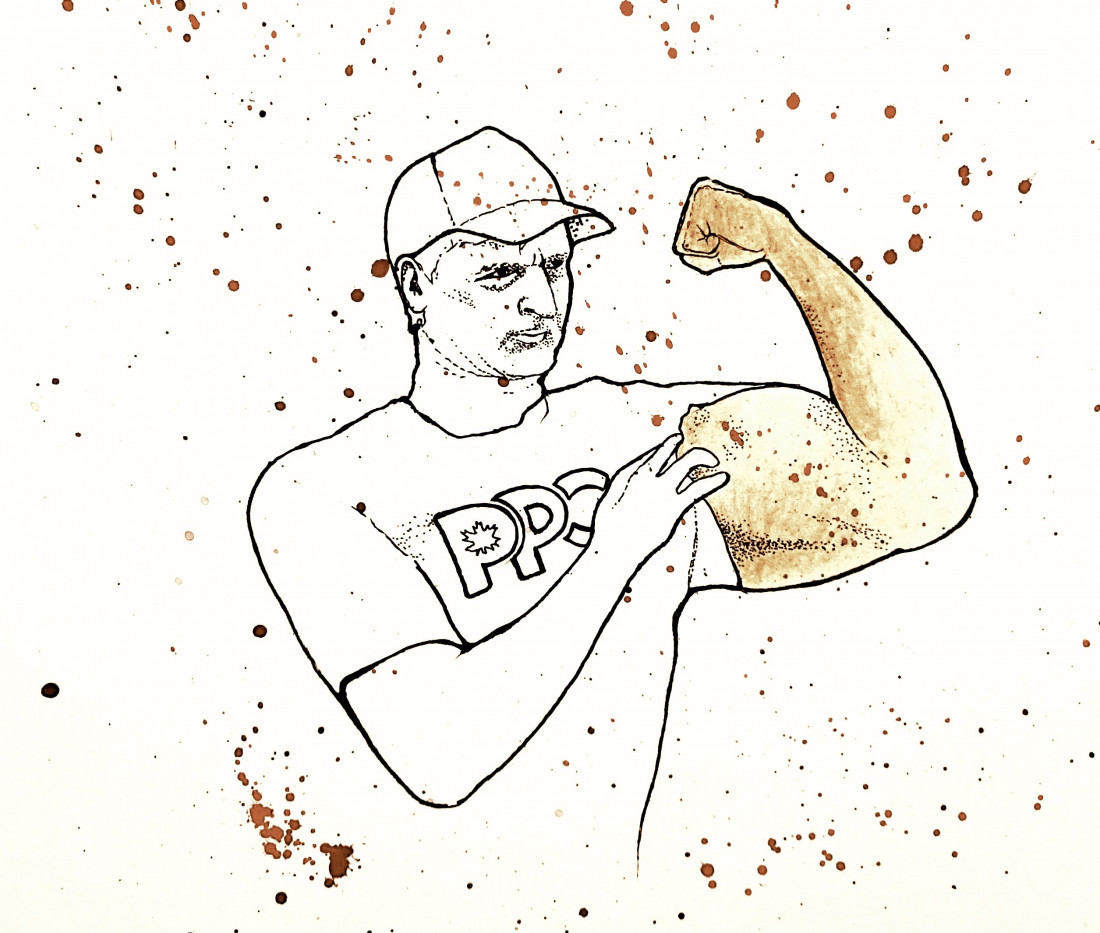Right-wing extremism finds a foothold
Online radicalization and PPC votes put minority groups at risk

Illustration by Gabrielle Funk
The People’s Party of Canada (PPC) made headlines last month as they garnered 5 per cent, or about 800,000 total votes, in the recent federal election. Much of their success can be attributed to the COVID-19 pandemic, which created a fertile environment for extremist conspiracy theories to thrive online.
Through websites like Facebook and 4Chan, the PPC found an audience, including among people who abandoned the Conservative Party because of their views on immigration, gender identity, free speech and other issues. Many have been radicalized online, leading to acts of racial abuse and hate crimes against minorities, especially Asian-Canadians.
The Institute for Strategic Dialogue (ISD) found that Canadians have a large presence on 4chan’s “politically incorrect” (/pol/) board. The forum promotes racist and misogynistic rhetoric, encouraging white supremacy and acting as a rendezvous point for those wanting to incite violence. The pandemic is one of /pol/’s most widely discussed topics, often promoting conspiracy theories and anger toward governments.
Far-right individuals, many of whom have been radicalized online, gravitated toward the PPC’s platform, which includes limiting immigration and refugee intake, repealing legislation that curtails online hate speech, ending vaccine mandates and supporting public access to military-grade weapons.
In March, The Toronto Star reported that farright nationalist groups urged their followers to support the PPC. The party seemingly struck a chord with people who want to defend their settler- colonial heritage and preserve a mythologized conception of Western civilization.
Writing about populism in America and Europe, researchers Pippa Norris and Ronald Inglehart suggest this extremism emerged as a cultural backlash against the social and political gains of women and other minority populations.
Men and working-class, native-born white people who feel excluded culturally and left behind economically focus their resentment on “outsiders.” This resentment ranges from negative perceptions to hate crimes, according to ISD.
According to Statistics Canada, police-reported hate crimes nearly doubled between 2016 and 2020. Between 2019 and 2020, Vancouver reported a 717 per cent increase in anti-Asian hate crimes.
Because of conspiracy theories related to COVID-19 and its origination in China, Asian-Canadians were frequently racially abused and physically attacked. However, discrimination against Asian people is not a new phenomenon.
Canada’s history includes Japanese internment camps during the Second World War, the Chinese Exclusion Act and pervasive Islamophobia. Discriminatory immigration policies only select “deserving” migrants, often meaning only those who are economically productive, aspirational and who align with conservative social norms.
PPC leader Maxime Bernier accuses minorities of diluting Canada’s settler-colonial heritage, which is offensive for countless reasons – one being that many Asian-Canadians spend their entire lives trying to fit into the mould of a deserving minority.
Some Asians carry the term “model minority” with pride, trusting individualistic notions advanced by colonial governments that tell us that simply putting our heads down, working hard and following the law can lead to prosperity. However, it’s not that simple. Racism persists, and “model minorities” are often wielded as a strategy to divide and conquer.
As an Asian-Canadian woman, I constantly have to prove that I have earned and deserve my achievements. I often question my compulsion to be accomplished. Perhaps it is because it has been drilled into me that moving to Canada is a privilege, and that I am lucky to be here.
This is the reality for many Asian immigrants. We are reminded that we do not belong, and that we are only as good as our economic contributions. Now, we are also burdened with the need to be vigilant about people who view us as scapegoats for rapidly changing social landscapes and policies that do not prioritize settler-colonists anymore.
Karla Atanacio is a Filipino-Canadian policy assistant, community organizer and writer from Winnipeg, Man.
Published in Volume 76, Number 6 of The Uniter (October 21, 2021)







